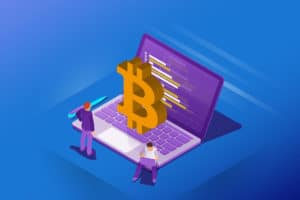In the country of El Salvador, Bitcoin enthusiasts have recently been providing lessons to 12-year-olds on how to send fractions of Bitcoin, called ‘satoshi‘.
Specifically, more than 25,000 students in the Central American country have had the opportunity to familiarize themselves with the concept of Bitcoin directly in classrooms.
We take a look at the details below.
More than 25,000 students in El Salvador embrace Bitcoin in education
Roman Martínez, the leader of the Bitcoin Beach community, recently shared his opinion about the importance of introducing concepts related to Bitcoin, money and economics early on.
In particular, he believes that this education can provide a promising perspective for the disadvantaged children he dedicates this teaching to, giving them more opportunities later in life.
Martínez described how Bitcoin Beach organizes extracurricular programs aimed at assisting children in the use of Bitcoin. Recalling that one ‘satoshi,’ or ‘sat,’ represents the smallest fraction of Bitcoin, and 10 million sat constitute one BTC:
“Every Friday we visit schools for Bitcoin education where we talk about money and dreams, teach them how to set up a Bitcoin wallet, help them get their first satoshi and transact.”
Martínez also noted how students have embraced the technology with enthusiasm, despite the fact that many initially shared the view that Bitcoin was complex to learn or reserved only for those studying economics:
“Once they are willing to learn, the process is surprisingly smooth.”
Bitcoin Beach: educating about finance, Bitcoin and more
He illustrated how Bitcoin Beach places special emphasis on educating students about Bitcoin, finance and the banking system, ambitions that are often overlooked in formal education:
“Nobody really teaches us anything about money. We transact every day, we work to earn money, we save it, but nobody educates us about it. If we are to make a change, it is essential that individuals and families learn how to manage money.”
Martínez believes Bitcoin represents “the pinnacle of the evolution of currency” and believes that teaching young people the benefits associated with Bitcoin – along with other vital skills – can lead them to seek better job prospects:
“If they have language skills, computer skills, a knowledge of Bitcoin and marketing skills, they will be able to work remotely for anyone, anywhere in the world. This is an extraordinary opportunity that is now opening up for everyone.”
According to its founding document, Bitcoin Beach represents a movement aimed at realizing the potential of Bitcoin by offering support to those who have been marginalized by the banking system.
It is based in El Zonte, a coastal location positioned an hour’s drive southwest of the national capital, San Salvador. This area was among the first in the entire country to undertake Bitcoin acceptance.
The “Bitcoin Diploma” thanks to My First Bitcoin: all the details
In addition, another non-profit organization dedicated to education on Bitcoin and based in El Salvador is My First Bitcoin, which has facilitated the attainment of a “Bitcoin Diploma” to more than 25,000 students through the public school system of ‘the entire nation.
Currently, about 70% of excluded El Salvadorans result from being able to use banking services. Financial inclusion has been a clear priority in the program of pro-Bitcoin President Nayib Bukele, who, according to some sources, boasts one of the highest presidential approval rates in the world.
In fact, several of the Bitcoin-related programs originated from the pioneering step taken by the Salvadoran government, which became the first in the world, as of September 2021, to grant Bitcoin legal tender status within the country.


